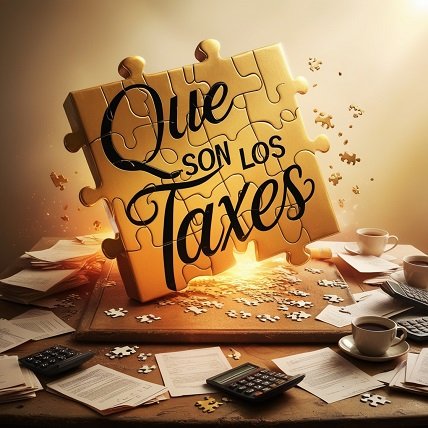Introduction
Few subjects in the fields of economics and personal finance generate as much interest—and occasionally confusion—as taxes. Knowing your taxes is important whether you’re an experienced taxpayer or are just getting started in the world of finance. This thorough guide seeks to demystify the idea of que son taxes, elucidate their types, effects, and importance, and offer helpful advice to assist you in navigating this crucial area of your financial life.
How Do Taxes Work?
Governments levy taxes on people and organizations as required financial contributions to pay for public spending. They are essential sources of funding for the provision of public goods and services, including military, healthcare, education, and infrastructure.
Why Do Taxes Get Imposed by Governments?
Taxes are levied by governments to fund public spending, redistribute income to fund social programs, and control the economy. Taxes are essential for supporting government spending and determining socioeconomic policy.
Tax Types
There are several different types of taxes, such as corporation, sales, property, income, and capital gains taxes. Based on the economic and social priorities of the jurisdiction, each kind has a distinct structure and fulfills a certain function.
How Them Taxes Are Determined
Tax calculations differ depending on the kind of tax and the jurisdiction; they are frequently based on tax rates, credits, and deductions that firms and individuals can take advantage of to reduce their taxable income as well as progressive or regressive tax structures.
Tax Forms and Filings: Their Significance
Every year, taxpayers must submit their income and financial information on certain tax forms that are supplied by the tax authorities. These forms, which include the IRS Form 1040 in the US, are required to be filed by certain dates and frequently have an electronic filing option for efficiency.
Comprehending Tax Payments and Refunds
People may need to make further payments if they owe more taxes than they have paid throughout the year, or they may receive tax refunds if their payments exceed their tax liability after filing taxes.
Taxes’ Effects on People and Businesses
que son taxes have a big impact on people’s personal and business finances. They affect people’s disposable income, savings, investment choices, profitability, pricing policies, and general economic behavior.
Strategies for que son taxes Planning
To optimize tax benefits and reduce tax liabilities lawfully, effective tax planning entails making strategic investments, managing income and expenses, making use of tax-advantaged accounts, and consulting a professional.
International Views on que son taxes
Global tax systems differ in terms of tax architecture, rates, and compliance needs. To properly manage tax obligations, both individuals and organizations operating worldwide must be aware of these variances.
Current Tax Developments and Trends
Tax laws change as the economy and society do, mirroring developments like taxes on the digital economy, environmental levies, and the taxation of new industries like cryptocurrency. It is vital to be up to date on these advancements in order to adjust to changing tax environments.
Conclusion
Participating in the economy and managing one’s personal finances require an understanding of que son taxes. Through an understanding of tax types, computations, implications, and planning techniques, both individuals and corporations can successfully traverse financial environments.
FAQ
What occurs if my taxes are not paid on time?
Depending on your jurisdiction, not paying taxes on time may result in fines, interest charges, and legal repercussions.
How can I pay less in taxes?
Among the tactics are taking full use of deductions, funding tax-advantaged accounts, and seeking individualized guidance fromque son taxes experts.
Do taxes apply globally the same way?
No, que son taxes systems change from nation to nation and have varying rates, structures, and standards for compliance.
What are some typical errors that taxpayers make?
Math blunders, forgetting credits or deductions, and missing filing deadlines are examples of common mistakes.
How can I keep up with changes to the tax code?
Examine government tax websites frequently, speak with tax experts, and keep up with news about finance to be educated.

